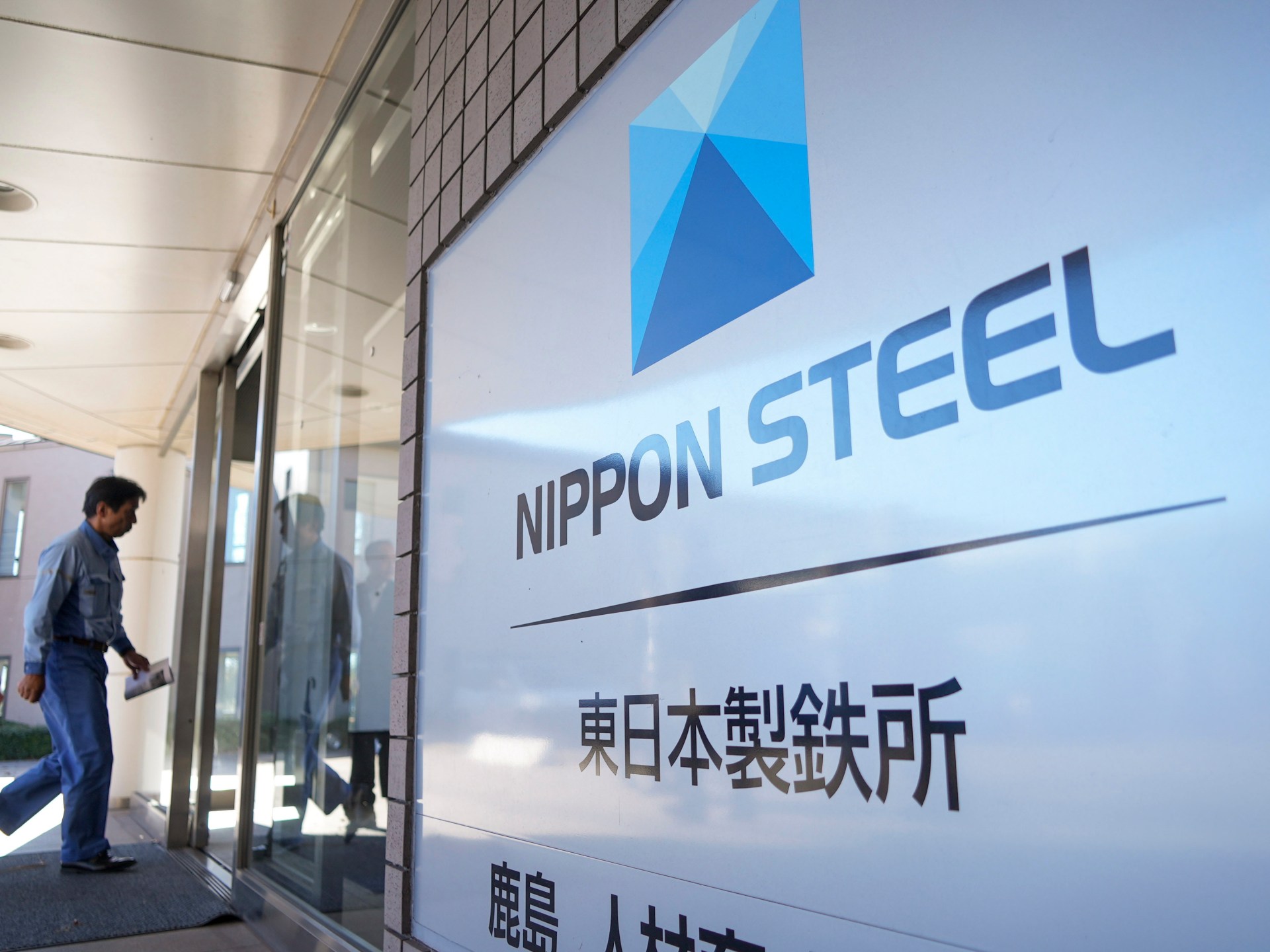The Biden administration’s decision to halt Nippon’s proposed $15 billion acquisition of the Pittsburgh company has been challenged by Nippon Steel and US Steel in a federal lawsuit. The companies claim that a rival steelmaker and the United Steelworkers Union collaborated to stop the buyout.
The lawsuit, which was filed on Monday, alleges that US President Joe Biden allegedly violated the rights of the companies to a fair evaluation by biasing his own decision against the Committee on Foreign Investment in the US (CFIUS), which evaluates foreign investments for risks to national security.
In moving to block the transaction on Friday, Biden said US companies producing a large amount of steel need to “keep leading the fight on behalf of America’s national interests”, though Japan, where Nippon is based, is a strong ally. For the first time, a US president has blocked a merger between a US and a Japanese company.
The steelmakers contend in separate lawsuits filed with the US District Court for the Western District of Pennsylvania and the US Court of Appeals for the District of Columbia that it was a political decision made by the Biden administration without a rational legal foundation.
In a prepared statement released on Monday, the companies said that “Nippon Steel and US Steel have engaged in good faith with all parties to underscore how the Transaction will enhance, not threaten, US national security.
Nippon Steel had , promised to invest $2.7bn in US Steel’s aging blast furnace operations in Gary, Indiana, and Pennsylvania’s Mon Valley, and had said it is best positioned to help the US compete in an industry dominated by the Chinese.
Without Nippon Steel’s cash, US Steel has warned that it will shift its production away from the blast furnaces to less expensive non-union electric arc furnaces and relocate to Pittsburgh as a result.
In a separate lawsuit filed in the District Court for the Western District of Pennsylvania, the companies accused steel-making rival Cleveland-Cliffs Inc and its CEO, Lourenco Goncalves, in coordination with David McCall, the head of the United Steelworkers (USW) union, of “engaging in a coordinated series of anticompetitive and racketeering activities” to block the deal. The allegations were deemed unsupported by McCall on Monday.
In 2023, before US Steel accepted the buyout offer from Nippon, Cleveland-Cliffs offered to buy US Steel for $7bn. The offer was declined by US Steel, and Nippon Steel later rejected an all-cash offer that had been rejected.
Politicised merger
Before the November US presidential election, the merger had become extremely politicized, with both Democrat Biden and Republican President-elect Donald Trump vowing to kill it as they wooed voters in Pennsylvania, the state where US Steel is headquartered. McCall, the USW president, was against the tie-up.
After the Japanese company offered to relocate its US steelmaker’s US headquarters to Pittsburgh, Trump and Biden both made claims that the company should remain American-owned even after the USW signed all agreements with US Steel.
According to the companies, Biden allegedly sought to “curry favor with the USW leadership in Pennsylvania in his bid for reelection.”
The Committee on Foreign Investment in the United States failed to conduct a good faith, national security-focused regulatory review process, according to the companies in a statement announcing the litigation.
A panel of national security and trade experts assessed the risk associated with this acquisition, according to a White House spokesman. President Biden will never hesitate to protect the security of this nation, its infrastructure, and the resilience of its supply chains”.
The lawsuit’s potential targets include CFIUS’s supervisor, Treasury Secretary Janet Yellen, and Attorney General Merrick Garland. According to experts, courts generally give CFIUS a lot of respect when it comes to defining national security.
The US Department of Justice declined to comment, and the Treasury Department did not respond to a Reuters news agency’s request for comment.
Trump posed the question, “Why would they want to sell US Steel now when Tariffs will make it a much more profitable and valuable company” in a post on his social media platform.
Trump has promised to impose universal import tariffs.
US Steel, founded in 1901 by some of the biggest US magnates, including Andrew Carnegie, JP Morgan and Charles Schwab, became intertwined with the nation’s industrial recovery following the Great Depression and World War II.
Following a number of quarters of declining revenue and profit, the business has been subject to competition for a takeover bid.
‘ Manipulated ‘ review
Nippon Steel’s December 2023 bid for US Steel faced headwinds from the start.
The companies claimed that Biden had already spoken out against the deal on March 14, precluding the CFIUS review’s conclusion and denying the businesses of the constitutional and CFIUS regulations’ guarantee of due process.
A week later, McCall gave Biden his support. Vice President Kamala Harris, who also criticized the deal and gained the USW’s support, later replaced Biden on the ticket.
A deal is typically approved by CFIUS after a review, or it might be recommended by the president. In rare cases, when the agencies that make up CFIUS cannot agree, they can refer the matter to the president, as they did with the Nippon Steel deal on December 23, setting the stage for Biden’s block.
Before that, CFIUS staff were barred from negotiating with the companies on a proposed agreement to address the committee’s national security concerns, the statement alleges, a marked deviation from normal practice.
The companies claimed that it is clear that the review process was being manipulated to support President Biden’s predetermined decision. “That cannot be, and is not, the due process to which parties before CFIUS are entitled”.

Leave a Reply